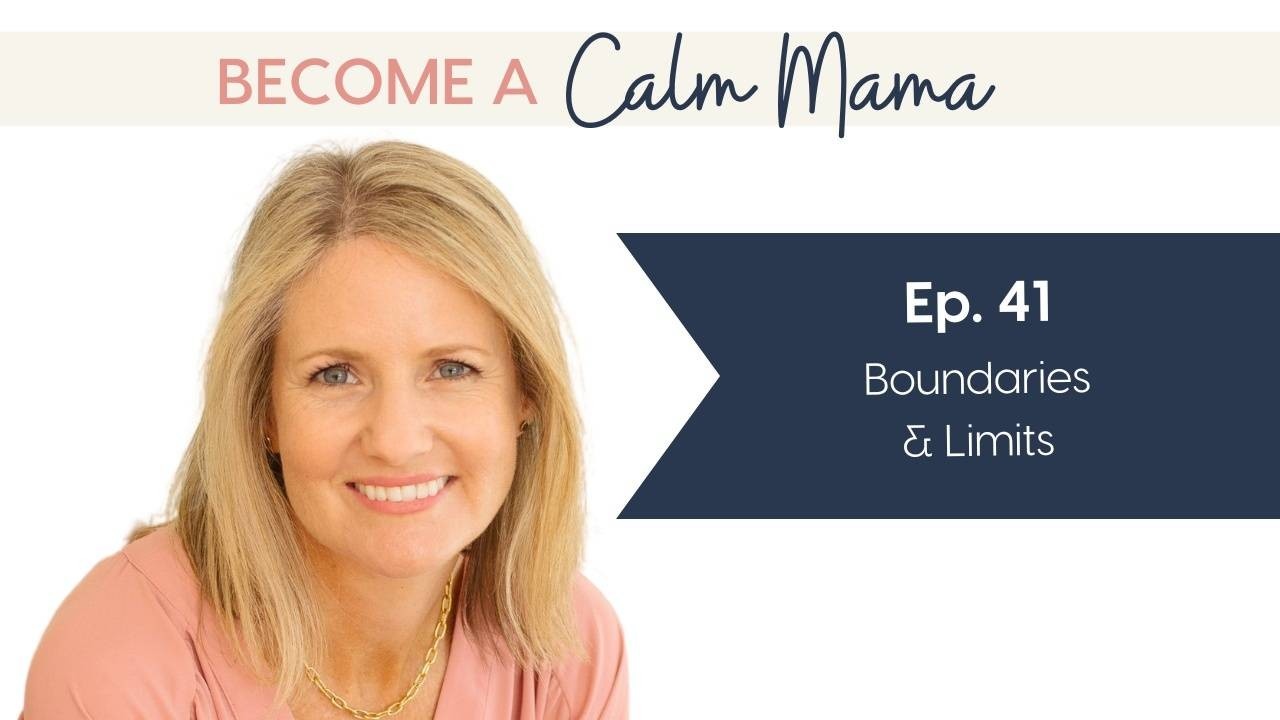
Boundaries & Limits
Nov 09, 2022Follow the Show
Apple Podcasts | Google Podcasts | Spotify | Everywhere else
In this episode, I’m talking all about boundaries, limits and rules. What is the difference between them? And how can you best utilize them, especially as we go into the holiday season?
Rules, Boundaries & Limits - What’s the Difference?
A rule is when you say what your child can or can’t do. Rules are a first step in teaching your kid how to listen, be responsible and think
A limit takes it a step further. It communicates to your child what they can do and the conditions that they can do it under.
A boundary is what you are or are not willing to do, and under what conditions. It’s a lot more about what you are comfortable with as a person.
So, rules and limits tell your child what they can or can’t do, and boundaries tell them what you are willing to do.
Setting Effective Rules, Limits & Boundaries
Rules, limits and boundaries all have a place and a purpose.
The most important thing is to be intentional about why you are setting them. You have to think in advance about what you want and what results you hope you see.
In addition, your rules will become more effective when you can turn them into limits.
When your child doesn’t follow a rule, you might be left feeling confused about what to do next. With a limit, that step is built in.
Inside Calm Mama Club, I teach a six-step limit setting process that includes:
- Choose what you want.
- Commit to the result.
- Check your capacity.
- Communicate your limit or boundary.
- Check back in.
- Consequence (follow through on your limit or boundary).
Following Through on Boundaries & Limits
Boundaries are more about what you as an individual are okay with, and they come into play not only in parenting, but in our adult relationships as well.
Remember that you cannot control what other humans (kid or adult) are going to do or say. You can only control the way you respond.
Even if you can clearly state what you are or are not comfortable with, following through when people don’t respect your boundaries can feel really hard.
Because when you enforce or you maintain your own boundary, other people are going to have thoughts and feelings about that. They might get upset, argue with you, blame you, defend themselves, or rage.
They are resisting the consequence or impact of their actions.
In people-pleasing, we try to avoid this discomfort. We want to make everybody happy and we don’t want others to be upset with us.
But then YOU end up being the one who’s unhappy and uncomfortable. And that’s not what we want.
Holding people accountable to their behavior doesn’t have to include shame, lectures or convincing the other person that our boundary or limit is ok.
And they are entitled to their thoughts and feelings. They are allowed to have that experience of you or think negative thoughts about you. It's okay. That's the way that they are processing their experience of you holding the boundary.
You often only have to really get serious about a limit or boundary a few times before the limit becomes much more clear with your kid and they begin to be more compliant. This is training, discipline - it’s what parenting is all about.
You’ll Learn:
- The difference between boundaries, limits and rules (with real-life examples)
- Strategies to decide what you want your rules, limits and boundaries to be
- How to know you need a limit or boundary
- My 6-step process for setting effective limits
Connect With Darlynn:
- Sign up for love notes and learn about The Calm Mama Club at www.calmmamacoaching.com
- Follow me on Instagram @darlynnchildress for daily tips
- Rate and review the podcast on Amazon
Boundaries come up big time during the holiday season. And I want you to say NO to all of the overload, burnout, overwhelm and resentment so you can actually enjoy the holidays.
Join me for a live discussion called Opt Out and Stop People Pleasing So You Actually Enjoy This Holiday Season. You’ll get clear on what you do and don’t want to do, how to communicate and how to follow through on it.
It's all happening November 29th & 30th and it's totally free!
Ready to stop yelling?
Get the one simple tool you need to stop yelling at your kids, so you finally feel calmer and connect better.
You'll learn why you yell, how to stop yourself yelling, 40 things to do instead and scripts for what to say to your kid when you yell.

